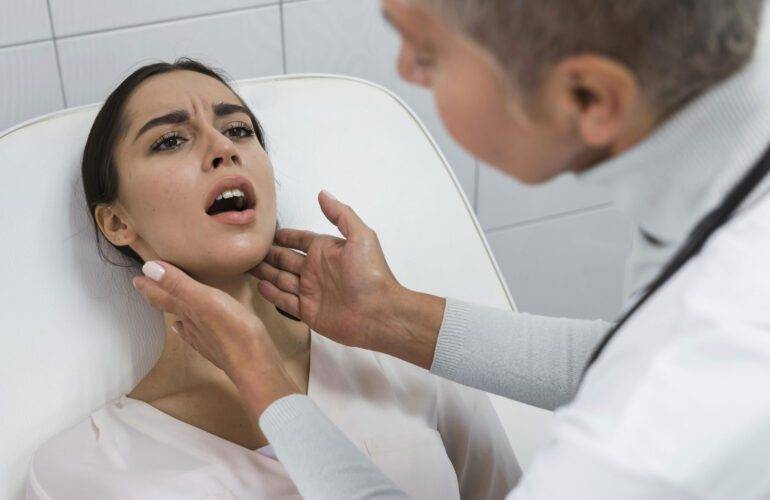TMJ-TMD Treatment
Others Oral Health Services
TMJ/TMD Treatment: Alleviating Pain and Restoring Function
Temporomandibular joint disorder (TMD) is a condition that affects the temporomandibular joint (TMJ), which connects the jawbone to the skull. TMD can cause pain, discomfort, and dysfunction in the jaw joint and surrounding muscles. Treatment aims to relieve pain, improve jaw function, and address the underlying cause of the disorder.
What is TMJ/TMD?
- TMJ: Refers to the temporomandibular joint itself, a complex hinge and gliding joint responsible for jaw movement.
- TMD: Stands for temporomandibular joint disorder, which encompasses a range of conditions affecting the TMJ and surrounding muscles.
Causes of TMD:
- Jaw Injury: Trauma to the jaw or TMJ can lead to TMD.
- Bruxism: Grinding or clenching of the teeth puts pressure on the TMJ.
- Arthritis: Degenerative joint diseases like osteoarthritis or rheumatoid arthritis can affect the TMJ.
- Stress: Stress can lead to muscle tension and tightness in the jaw muscles.
Common Symptoms of TMD:
- Jaw Pain: Pain or tenderness in the jaw, TMJ, or surrounding muscles.
- Limited Movement: Difficulty opening or closing the mouth fully.
- Clicking or Popping Sounds: Noises coming from the TMJ when moving the jaw.
- Headaches: Frequent headaches or migraines.
- Ear Pain: Pain or discomfort in or around the ear.
Treatment Options for TMD:
- Self-Care: Simple measures like applying ice packs, eating soft foods, and practicing stress-reducing techniques can provide relief.
- Medications: Pain relievers, anti-inflammatories, and muscle relaxants can help manage symptoms.
- Physical Therapy: Exercises and stretches to strengthen and relax jaw muscles.
- Oral Appliances: Night guards or splints can reduce the effects of bruxism and reposition the jaw to relieve pressure on the TMJ.
- Dental Treatment: Correcting bite issues or misaligned teeth can alleviate stress on the TMJ.
- Surgery: In severe cases, surgical intervention may be necessary to repair or replace the TMJ.
What to Expect During TMD Treatment:
- Diagnosis: A thorough examination, including imaging tests like X-rays or MRI, may be conducted to diagnose TMD and determine the best treatment plan.
- Personalized Plan: Treatment is tailored to the individual’s specific symptoms and underlying cause of TMD.
- Follow-Up: Regular follow-up appointments are essential to monitor progress and adjust treatment as needed.

